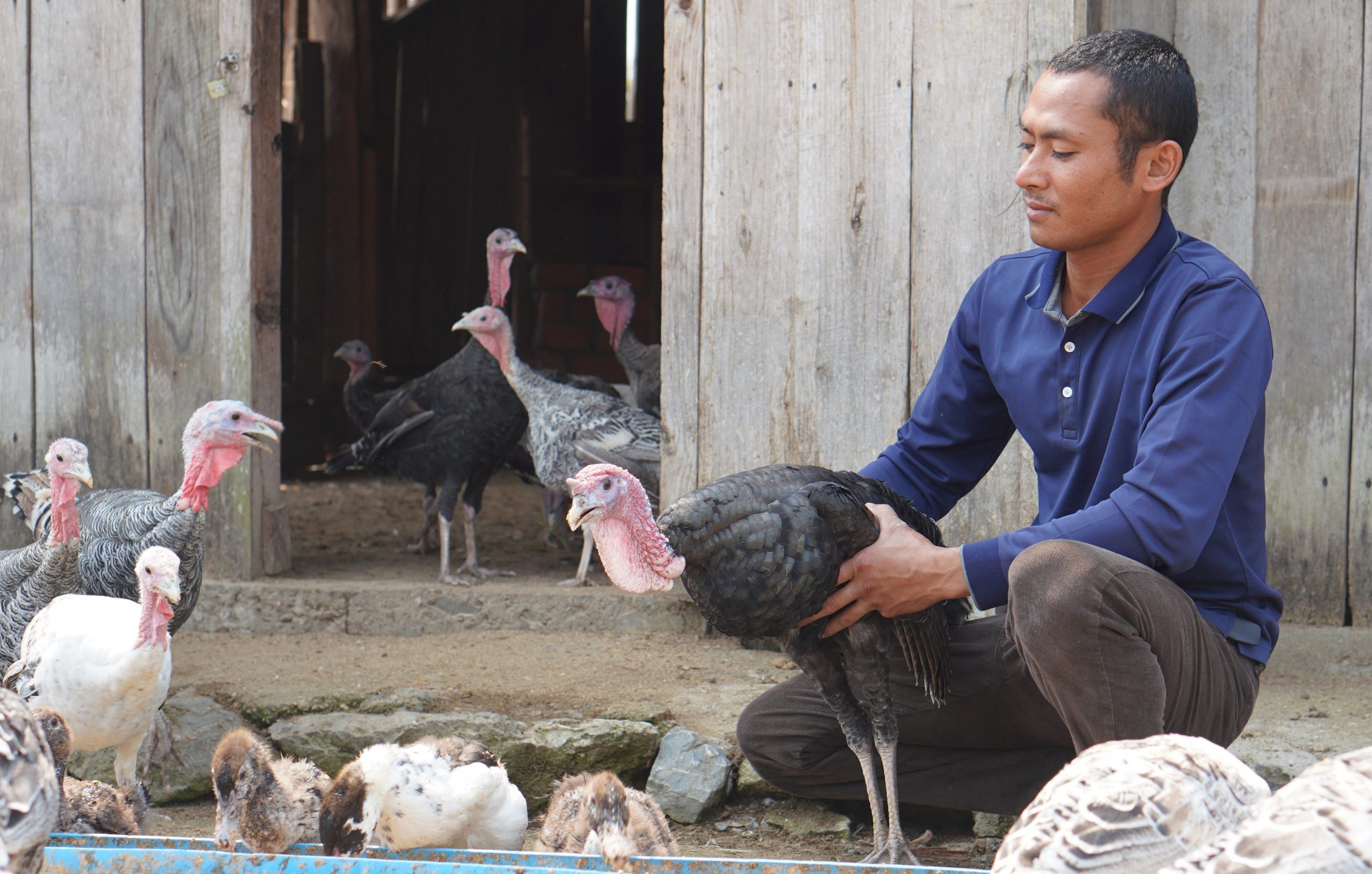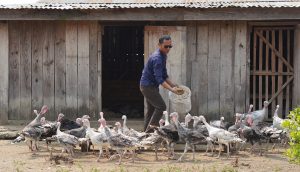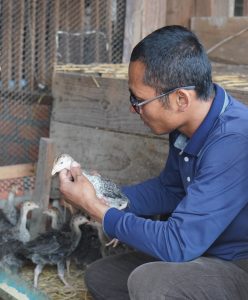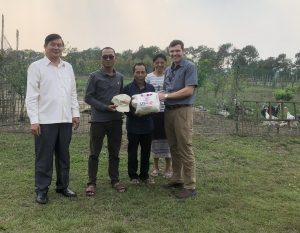

Saykham Phommavongsa is a 32-year-old turkey farmer in the village of Nady in the Pek District of Xiengkhouang Province. After graduating from university, he was unable to find a job. He reared chickens for several years but was not able to make enough income to support his family. In January 2020, he started to rear turkeys and dreamed of becoming an entrepreneur to generate more income for his family.
However, because Saykham lacked business skills, he did not focus on budgeting, profits and revenues, or marketing. Still afraid to take risks as an entrepreneur, Saykham reared only a few turkeys and did not have many customers.
USAID Laos Microenterprise Provides Business Training
In June 2020, USAID Laos Microenterprise, implemented by ACDI/VOCA, came to Saykham’s village for a business training. When he heard about the training, both he and his father attended. He learned how to budget, increase profits, market products, develop a business plan, calculate household expenses, keep records, and make smart business decisions throughout the month-long training.
Growing the Business
By applying what he learned, Saykham now pays more attention to budgeting, profit calculations, recordkeeping, and where and when to sell effectively. He purchased more turkeys and built an improved hut for them. To reduce operation costs, he planted sweetgrass to mix in with animal feed. Every day, he spends nearly three hours caring for them and nearly a dollar on animal feed, rice husk, and sweetgrass.
Currently, he sells turkeys to buyers in the capital city of Vientiane and locally, mostly for wedding events that provide a demand and higher price point. Saykham earned $ 1,595 selling nearly 70 turkeys. Each turkey sold for $26.58, allowing him to make a profit of nearly $956.84 in a seven-month period. This was a significant amount of income for his family and meant more savings to help him invest further in his dream.
“I used to be scared to take risks and do business, not even knowing how much I spend and gain from it. Now I have a plan before I start each time, and I am impressed with the income I made. This training helps me a lot by making an intelligent decision to increase selling and profit for my family.”
–- Saykham Phommavongsa, a turkey farmer and USAID Laos Microenterprise participant
Getting the Community Involved

Saykham also sells some small turkeys to his neighbors who want to rear their own. He now has 100 small turkeys and 40 big turkeys, which will be ready to sell next month at $1,063.16. Each turkey will be sold for $26.58.
Saykham once had a customer who ordered 100 turkeys in a month, but Saykham could only produce 40 to 70 turkeys in a seven-month period. To meet this demand, he had the idea to expand his turkey business by increasing turkey rearing in his village and selling turkeys both for rearing and consumption.
Saykham encourages his neighbors to start their own businesses by selling them small turkeys and offering training classes. In the future, he hopes to purchase a grass-slicing machine for mixing in animal feed for himself and his neighbors as a way of reducing costs. Saykham will then buy the turkeys from his neighbors to sell to larger buyers. Saykham has even had an individual stay with him for a week to learn best practices.

USAID representatives Cullen Hughes and Somsangouane Keovilay, along with the Pek Vice Governor Boualoy Chanthavong and DAFO representatives visited Saykham and were particularly impressed by Saykham’s careful records of the amount of food fed to each turkey at various ages.
The support of USAID, through Laos Microenterprise, to a business like this can contribute to the development of the community while also creating a stable and profitable market for turkey farmers in Xiengkhouang.
Laos Microenterprise aims to strengthen the competitiveness of microenterprises in the Lao People’s Democratic Republic by expanding access to and adoption of business skills, modern technologies and practices, finance, market linkages, and public-private dialogue.
Learn more about USAID Laos Microenterprise.
Learn more about our work in Laos.





